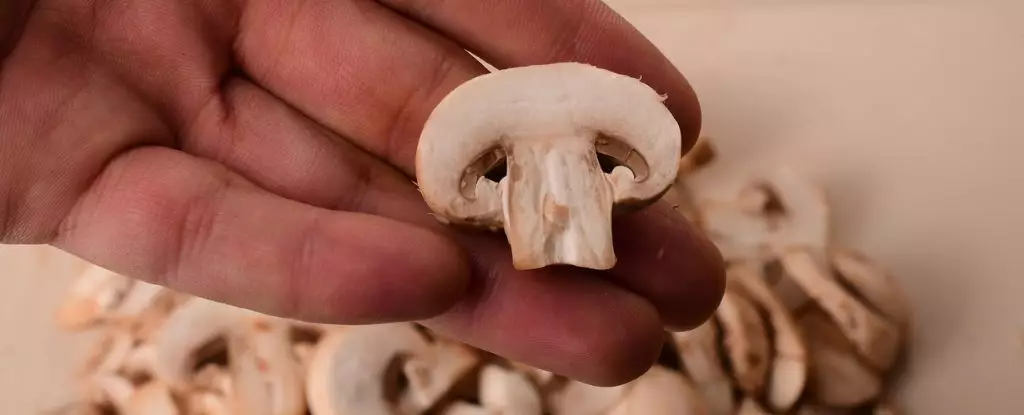Mushrooms have long been celebrated in culinary traditions around the world, but recent scientific investigations are revealing their surprising potential as agents in medicinal therapies. While exotic varieties such as Lion’s mane often capture the spotlight, even the most familiar species, like the white button mushroom (Agaricus bisporus), are now being studied for their health benefits. Emerging research indicates that these ubiquitous fungi could play a significant role in combating serious health issues, including prostate cancer. This article delves into the unfolding narrative of white button mushrooms and their potential impact on cancer treatment.
The white button mushroom is recognized as the most cultivated edible mushroom globally, with a low profile in terms of medicinal capabilities. However, innovative research from the City of Hope, a leading cancer research institution based in the United States, is challenging this notion. For the first time, studies have shown that extracts from white button mushrooms may not only have nutritional value but also the capacity to hinder the progression of prostate cancer. Although the U.S. Food and Drug Administration (FDA) has not yet sanctioned any food-derived products for cancer treatment, researchers are making strides in creating a scientifically substantiated framework around the therapeutic properties of this common mushroom.
Specifically, researchers have identified that white button mushrooms may counteract the effects of myeloid-derived suppressor cells (MDSCs), which are notorious for their role in dampening the body’s immune response to tumors. High levels of MDSCs are often present in prostate cancer cases, creating a protective barrier that hinders standard treatment efficacy. By utilizing white button mushrooms as part of an adjuvant therapy following primary cancer treatments, there is potential to enhance patient outcomes.
Initial clinical trials conducted by the City of Hope have yielded promising results. In a phase I trial, participants who consumed mushroom extract tablets showed a noteworthy reduction in MDSC levels, with some experiencing declines in biomarkers linked to prostate cancer, sometimes dropping to undetectable levels. These findings provided the impetus for further investigations, resulting in a phase II clinical trial involving blood analyses from prostate cancer patients on the experimental mushroom regimen.
The outcomes from these studies on both mice and humans have been compelling. In mouse models, those treated with white button mushroom extract demonstrated significant tumor growth delays and increased survival rates. The mechanisms contributing to these benefits, however, remain unclear. It is hypothesized that the extract possesses a diverse array of phytochemicals, soluble fibers, and proteins, all potentially working in concert to provide a multi-faceted attack on cancer cells.
Future Directions: The Path Ahead
Despite the encouraging nature of these findings, researchers caution that these studies are still in their infancy. The road to integration of food-derived therapies into mainstream cancer treatment is fraught with challenges, particularly in confirming the safety and efficacy of such nutraceutical interventions. As Xiaoqiang Wang, a prominent scientist at the City of Hope, indicated, while results thus far are encouraging, ongoing research is necessary to verify their implications.
With traditional medicine often skeptical of supplement-based treatments, comprehensive clinical trials will be paramount in establishing the legitimacy of mushrooms as supportive cancer therapies. Rigorously investigating the bioactive compounds found in white button mushrooms may provide insights into their anti-cancer properties, ultimately paving the way for their inclusion in more holistic treatment protocols.
The narrative surrounding mushrooms, particularly the humble white button variety, underscores the importance of viewing food not just as sustenance, but as a potential ally in combating disease. As research progresses, this once-overlooked fungus might emerge as a key player in the fight against prostate cancer. As community awareness grows regarding the healing properties of natural foods, the phrase “food as medicine” could become a cornerstone of recommended practices for individuals battling cancer, thereby transforming nutritional standards in clinical settings. Through continued research and advocacy, the doors may open wide to a new frontier in cancer care—one where the power of the most basic food sources is harnessed for healing.


Leave a Reply